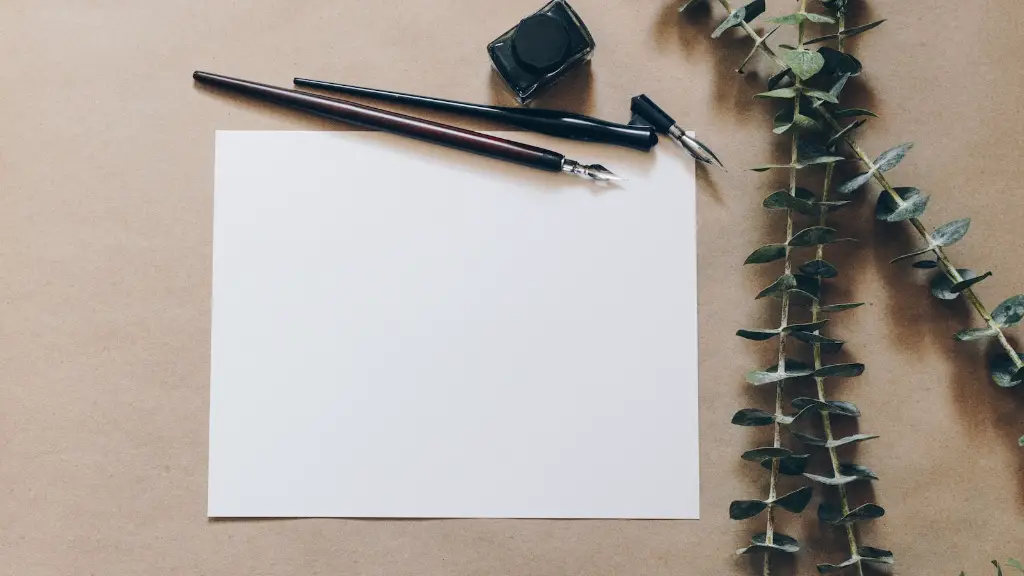Introduction
Poetry is an art form that has been around since ancient times, and the methods used to teach it are as varied and diverse as the people who compose it. From traditional lectures in a classroom to more modern methods such as dramatic readings, video instruction and even augmented reality, learning to read and write poetry can be an enjoyable and rewarding experience for both the student and the teacher. In this article, we will explore different techniques for teaching poetry, from creative activities to analytical approaches.
Active Engagement Techniques
One of the best ways to teach poetry is through active engagement; this includes activities such as performance, improvisation and creative writing. For example, teachers can facilitate a dramatic reading of a poem, encouraging students to bring the work to life by reciting it in a performance that engages the audience. Improvisation tasks are also useful, giving students the opportunity to explore different poetic forms and make them more tangible. Creative writing activities can also be used to help students make their own original works, while also learning how to construct and write poetry.
Analytical Strategies
Apart from active engagement techniques, analytical strategies can be used to help students develop their understanding of the structure, meaning and technique of poetry. For example, an analysis of the rhyme and meter of a poem can offer an insight into the way it is composed and the effects that each poetic element has on the whole. Comparing and contrasting different poems can also help to develop critical thinking skills, while close reading exercises can be used to identify the symbolism and metaphors within a work.
In-Class Discussions
Another effective approach to teaching poetry is through in-class discussions that explore how different poets use language to create imagery and powerful emotions. This provides an opportunity to develop students’ understanding of the way poetry can communicate ideas and feelings, while also deepening their appreciation of the craft. Discussions can be further enriched by inviting expert guest speakers to introduce students to different forms of poetry and discuss their work in a more intimate setting.
Using Technology
In recent years, technology has provided additional ways to teach poetry. From digital reading activities to augmented reality programs, educators can use various methods to bring poetry to life in the classroom. For example, video recordings of classic poems have enabled students to experience them without having to read them aloud, while augmented reality tutorials can assist in the study of poetic expression.
Collaboration
Collaborative learning is an effective method of teaching poetry, particularly when practical activities such as writing and performance are involved. By working in small groups, students can contribute ideas, build on each other’s work and share criticism, developing both their writing skills and their understanding of the art form. Furthermore, collaborative tasks can also encourage students to develop their own interpretations of the works they are studying.
Miscellaneous
A variety of other approaches can be used to effectively teach poetry, such as role play, class debates and group projects. These activities allow students to express themselves creatively while gaining an understanding of the language and structure of poetry. In addition, online resources such as poetry websites offer an opportunity to explore the works of great poets, discuss them with peers and join in or create collaborative projects.
Using Music to Teach Poetry
Using music to teach poetry is an interesting and engaging approach; aside from providing a fun and creative way to learn about poetic expression, it can also help students tap into the emotions of a work. For example, musical accompaniment can be used to deepen students’ understanding of a poem, allowing them to explore its emotions through melody and rhythm. Furthermore, incorporating musical instruments into the teaching process can further enrich the learning experience by offering a multi-sensory approach.
Visiting Poets
Visiting poets are an often-overlooked but highly effective way to learn about and explore poetry. Inviting guest poets to the classroom can provide students with the opportunity to listen to work in progress, ask questions and gain advice from professionals. It can also equip them with a range of skills, from analysis and reading techniques to gaining a better understanding of poetic language.
Cultivating Community
Cultivating a sense of community within the classroom can help to deepen the understanding and appreciation of poetry. By creating a safe space where students can discuss their own work and provide constructive criticism, they can gain an insight into their own and others’ writings. Moreover, fostering a sense of community within the classroom can also aid in the development of skills necessary for collaboration.
Poetry Competitions
Competitions can be both beneficial and exciting for poetry students; they can provide an incentive to push themselves in their writing and experience the joys of success. Similarly, poetry competitions can create healthy competition amongst students and encourage them to analyze and critique each other’s work. Hosting poetry competitions can also be an opportunity for teachers to increase the visibility and appreciation of poetry in their community.
Adapting to the Learner’s Needs
When teaching poetry, it is important to be mindful of individual student’s needs. Some students may require more creative activities or have different learning styles, so it is important to be flexible in one’s teaching methods. Adapting to the learner’s needs helps to ensure that all students can enjoy and benefit from learning about poetry.
Final Thoughts
Ultimately, there is no single correct way to teach poetry, and educators should be willing to explore and experiment with different approaches. By incorporating different methods, teachers can provide a more engaging learning experience that fosters creativity, collaboration, communication and critical thinking. In addition, it is also important to stay up to date with the latest technologies and resources available to educators, in order to ensure that the teachings of poetry remain relevant and beneficial for both teachers and students.



